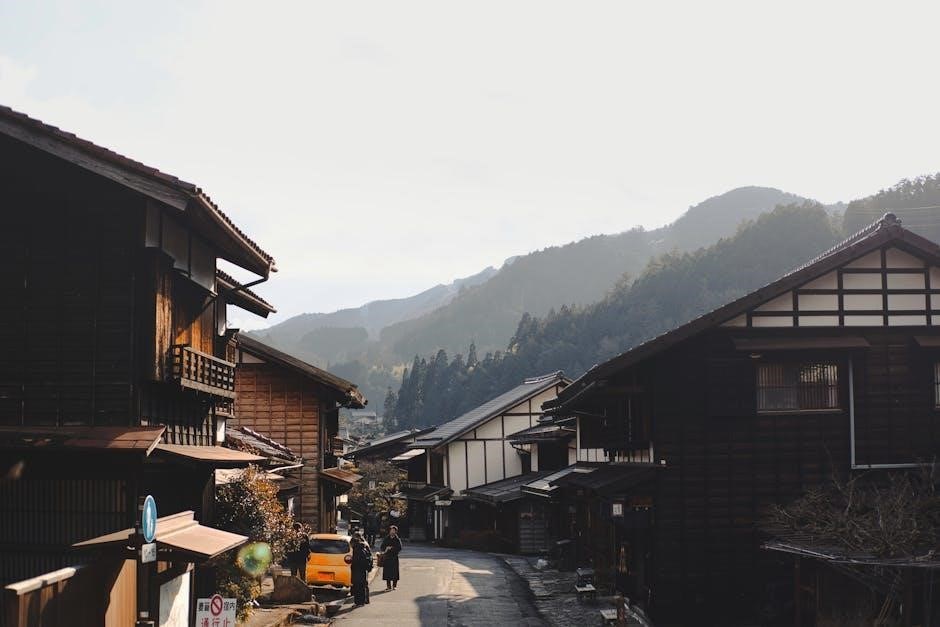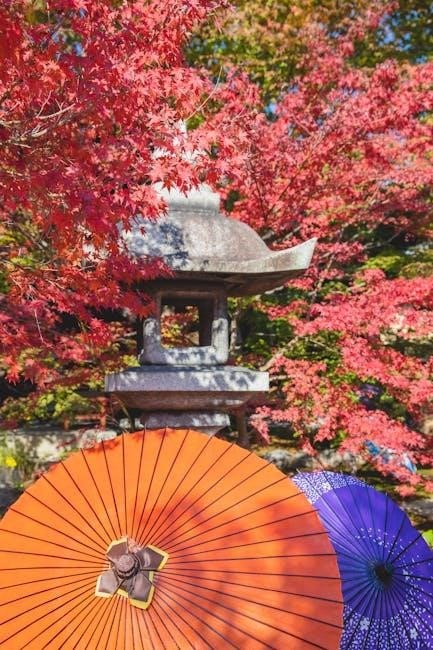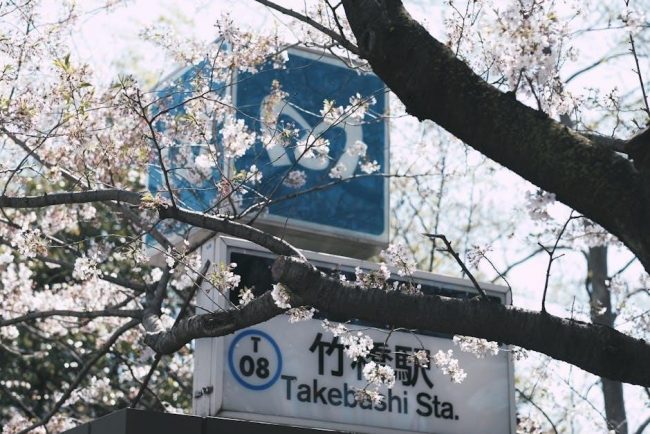Popular Japanese travel phrase PDFs provide essential vocabulary and cultural tips for visitors. These guides cover greetings, dining, transportation, and emergencies, helping travelers navigate Japan confidently offline.
1.1 Importance of Learning Japanese Phrases for Travelers
Learning essential Japanese travel phrases is crucial for overcoming the language barrier and enhancing your travel experience. Simple expressions like greetings and polite requests can significantly improve interactions with locals. Understanding key phrases for dining, transportation, and emergencies ensures smoother navigation. PDF guides offer convenient offline access to these phrases, helping travelers communicate confidently and respectfully in various situations.
1.2 Overview of Common Scenarios Where Phrases Are Useful
Japanese travel phrases are invaluable in everyday situations, from navigating airports and train stations to dining at restaurants and shopping. They also prove essential during emergencies, when asking for directions, or interacting with hotel staff. PDF guides often categorize these phrases by scenario, making them easy to reference. This organization ensures travelers can quickly find the right words for any moment, enhancing their overall experience in Japan.

Essential Greetings and Basic Phrases
Mastering key phrases like “Ohayou Gozaimasu” (Good morning) and “Arigatou” (Thank you) is crucial for respectful communication in Japan. These phrases are included in most PDF guides for easy reference.
2.1 Common Greetings Like “Ohayou Gozaimasu” and “Konnichiwa”
“Arigatou” (thank you) and “Sumimasen” (sorry/excuse me) are cornerstone polite expressions in Japanese. “Arigatou” is used to express gratitude, while “Sumimasen” serves to apologize or get attention. These phrases are widely included in Japanese travel phrase PDFs to help visitors communicate respectfully. Mastering them enhances interactions, showing cultural awareness and fostering positive connections during your trip. They are simple yet impactful for everyday situations. Japanese travel phrase PDFs often include essential transportation-related phrases like “Where is the station?” and “Please take me to…” These help travelers navigate Japan’s advanced transport systems efficiently offline; Learning phrases like “Where is the station?” and “Please take me to…” is crucial for navigating Japan’s airports and train stations. These phrases, found in many Japanese travel phrase PDFs, help travelers efficiently find their way, purchase tickets, and understand station layouts. Mastering these expressions ensures smooth transitions during your journey, even in busy environments like Tokyo Station or major airports. Mastering phrases like “Where is the station?” and “How much is the fare?” is essential for navigating Japan. Key expressions include “Eki wa doko desu ka?” (Where is the station?) and “Chiketto wa ikura desu ka?” (How much is the ticket?). These phrases, often found in Japanese travel phrase PDFs, help travelers purchase tickets and ask for directions confidently, ensuring a seamless experience while using public transportation. Learning essential Japanese dining phrases enhances your cultural experience. Common expressions like “sumimasen” and “arigatou” assist with menu navigation and polite requests. PDF guides provide handy lists for various dining situations. Essential Japanese phrases for dining include “Sumimasen” (excuse me) and “Arigatou” (thank you). Useful expressions like “Menu kudasai” (menu, please) and “O-namae wa nan desu ka” (what is the name?) are included in PDF guides. These resources also cover phrases for ordering, such as “Kono oishii mono wa nan desu ka” (what is this delicious dish?) and “O-mizu o kudasai” (water, please). Learning these phrases enhances your dining experience in Japan. Learning Japanese food-related vocabulary is crucial for a enjoyable dining experience. Common phrases like “Kono ryōri wa nan desu ka” (what is this dish?) and “Bejitarian desu” (I am a vegetarian) are essential. PDF guides often include lists of food items and expressions like “O-mizu o kudasai” (water, please) and “Kōhī o o-namae desu” (coffee, please). Useful tips include asking “Osusume wa nan desu ka” (what do you recommend?) and understanding phrases like “Kono ryōri ni wa nan o tsukemasu ka” (what ingredients are used here?). These phrases help travelers with dietary restrictions and enhance their dining experience in Japan. Japanese shopping phrases in PDF guides include essential terms like “Kono nedan wa ikura desu ka” (how much is this?) and “Kōin de harimasen ka” (do you accept coins?). Essential Japanese shopping phrases like “Kono o kudasai” (I’ll take this) and “Okanai de wa arimasen ka” (do you have something cheaper?) are crucial for travelers. PDF guides often include phrases for bargaining, such as “Chotto okanai desu ka” (can you lower the price a bit?). These expressions help navigate markets and stores, ensuring a smooth shopping experience in Japan. Mastering Japanese numbers and price-related phrases is vital for shopping. Phrases like “Ikura desu ka” (how much is this?) and “Kono nedan-wa nan desu ka” (what’s the price of this?) are essential. PDF guides often include lists of numbers (1-10: ichi, ni, san, etc.) and expressions like “En o kudasai” (give me change). This helps travelers handle transactions and budgets effectively in Japan. Essential Japanese navigation phrases include asking directions and understanding responses. Phrases like “Sumimasen, eki wa doko desu ka” (Where is the station?) and “Migi ni magatte kudasai” (Please turn right) are crucial. These phrases, found in PDF guides, help travelers navigate using maps and signs effectively in Japan. Mastering phrases like “Sumimasen, eki wa doko desu ka” (Where is the station?) and “Migi ni magatte kudasai” (Please turn right) is vital. PDF guides often include these essential questions and responses, helping travelers navigate confidently. Understanding directional terms like “Massugu itte kudasai” (Go straight) and “Hidari ni magatte kudasai” (Turn left) ensures clear communication. These resources also cover map-related vocabulary and landmark identification, making navigation in Japan easier for visitors. Learning phrases like “Chizu wa arimasu ka” (Do you have a map?) and “Koko wa nan desu ka” (What is this place?) is essential. PDF guides often include map-related vocabulary, such as “landmark” and “station,” to help travelers identify locations; These resources also provide tips for asking about nearby attractions and understanding spatial descriptions, making navigation in Japan more straightforward for visitors. Essential phrases like “Kagi wa arimasu ka” (Do you have the key?) and “Heya wa doko desu ka” (Where is the room?) are included in PDF guides. These resources help travelers communicate effectively during their stay, ensuring a smooth experience in Japanese hotels. PDF guides often include phrases like “Chekin o onegai shimasu” (Check-in, please) and “Chekku auto o onegai shimasu” (Check-out, please). They also cover room-related requests such as “Shukashi o onegai shimasu” (Towels, please) or “Ea kono heya wa ishi desu ka?” (Is there a problem with this room?). These phrases help travelers communicate effectively during their stay in Japanese hotels. PDF guides include phrases for requesting amenities like “Kono heya de wa dōyatte imasu ka?” (How is this room?) or “Ofuro wa doko desu ka?” (Where is the bathroom?). They also cover services such as “Tawuru o onegai shimasu” (Towels, please) and “Kōhī o o agari kudasai” (Please bring coffee). These phrases help travelers request essentials and navigate hotel facilities effectively while in Japan. Emergency Japanese travel phrases in PDF guides include ‘Kono heya de wa dōyatte imasu ka?’ for medical help and ‘Ofuro wa doko desu ka?’ for police locations. Japanese travel phrase PDFs include essential expressions for medical emergencies. Key phrases like ‘Kono heya de wa dōyatte imasu ka?’ (How do you feel here?) and ‘Gomen nasai, eki wa doko desu ka?’ (Sorry, where is the station?) help travelers communicate effectively in critical situations. These guides ensure quick access to vital language support during medical or urgent needs while in Japan. Japanese travel phrase PDFs often include vocabulary for interacting with police and handling lost items. Essential phrases like ‘Kono heya de wa dōyatte imasu ka?’ (Where is the police station?) and ‘Gomen nasai, eki wa doko desu ka?’ (Sorry, I lost my passport) are crucial. These guides provide clear translations and pronunciation tips, ensuring travelers can communicate effectively in such situations while in Japan. Mastering cultural etiquette phrases like ‘Arigatou’ and ‘Sumimasen’ is key to showing respect in Japan, especially in temples and traditional settings, making your visit more harmonious and meaningful. Learning respectful phrases like “Arigatou” (thank you) and “Sumimasen” (sorry/excuse me) is crucial for showing politeness in Japan. Using honorifics and phrases like “Ogenki desu ka?” (how are you?) demonstrates respect. Even a small effort to speak Japanese can significantly enhance your interactions and leave a positive impression during your travels. These phrases are often included in Japanese travel phrase PDFs to help visitors navigate cultural norms effectively. Understanding vocabulary for temples enhances your experience in traditional settings. Phrases like “Ogenki desu ka?” (how are you?) and “Ojikan desu ka?” (what time is it?) are useful. Knowing terms like “Sumimasen” (excuse me) and “Arigatou gozaimasu” (thank you) shows respect. These phrases, often found in Japanese travel PDFs, help navigate temple visits, shrines, and cultural ceremonies gracefully, ensuring a meaningful connection with Japan’s heritage. Downloadable Japanese travel phrase PDFs offer offline access to essential vocabulary. These guides, like the one from the Japan National Tourism Organization, are perfect for navigating Japan without internet, ensuring smooth communication in any situation. Top-rated Japanese travel phrase PDFs include guides from the Japan National Tourism Organization and popular travel bloggers. These resources offer essential phrases for greetings, dining, transportation, and emergencies. Many PDFs, such as Survival Japanese (PDF), are designed for offline use, ensuring travelers can communicate confidently without internet. They often include pronunciation guides and cultural tips, making them indispensable for visitors to Japan. A Japanese travel phrases PDF offers convenience and accessibility, especially offline. These cheat sheets organize essential phrases by category, such as greetings, dining, and emergencies, making them easy to reference quickly. Many include pronunciation guides and cultural insights, ensuring travelers can communicate effectively. PDFs are lightweight and portable, making them a practical tool for navigating Japan confidently, even without internet access. Mastering essential Japanese travel phrases ensures a smoother experience. Practice regularly, use them confidently, and carry a PDF guide for quick reference. Smile, stay polite, and enjoy your journey! Mastering essential Japanese travel phrases like greetings, polite expressions, and transportation terms ensures a seamless experience. Key phrases include asking for directions, dining out vocabulary, and emergency queries. Carry a PDF guide for quick reference. Prioritize learning phrases for common scenarios, such as checking into hotels or shopping. Practice these phrases to communicate confidently and navigate Japan effortlessly. Learning and using Japanese travel phrases enhances your journey and shows respect for the culture; Practice key expressions regularly and use them confidently during your trip. Even simple phrases like “arigatou” or “sumimasen” can create positive interactions. Smile, stay polite, and embrace opportunities to communicate. Carry a PDF cheat sheet for quick reference and enjoy a more authentic and stress-free experience in Japan.2.2 Polite Expressions Such as “Arigatou” and “Sumimasen”

Transportation-Related Phrases
3.1 Phrases for Airports and Train Stations
3.2 Asking for Directions and Ticket-Related Vocabulary
Dining Out in Japan
4.1 Phrases for Restaurants and Bars
4.2 Food-Related Vocabulary and Ordering Tips

Shopping and Money
5.1 Phrases for Making Purchases and Bargaining
5.2 Vocabulary for Numbers and Prices
Directions and Navigation
6.1 Asking for Directions and Understanding Responses
6.2 Phrases for Maps and Landmarks
Accommodation and Hotel Phrases
7.1 Checking In, Checking Out, and Room-Related Requests
7.2 Vocabulary for Amenities and Services

Emergency Situations
8.1 Phrases for Medical Help and Emergencies
8.2 Vocabulary for Police and Lost Items

Cultural Etiquette Phrases
9.1 Phrases for Respect and Politeness in Japanese Culture
9.2 Vocabulary for Traditional Settings Like Temples

PDF Resources for Japanese Travel Phrases
10.1 Top PDF Guides Available Online
10.2 Benefits of Using a PDF Cheat Sheet for Travel
11.1 Summarizing Key Phrases for a Smooth Trip
11.2 Encouragement to Practice and Use Phrases Confidently
